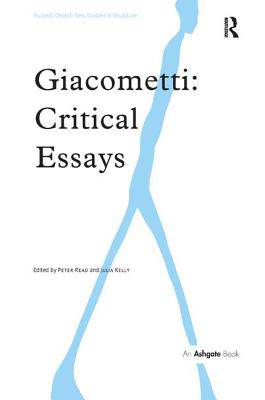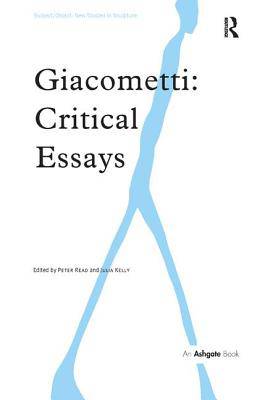
- Retrait gratuit dans votre magasin Club
- 7.000.000 titres dans notre catalogue
- Payer en toute sécurité
- Toujours un magasin près de chez vous
- Retrait gratuit dans votre magasin Club
- 7.000.000 titres dans notre catalogue
- Payer en toute sécurité
- Toujours un magasin près de chez vous
Giacometti: Critical Essays
Description
Giacometti: Critical Essays brings together new studies by an international team of scholars who together explore the whole span of Alberto Giacometti's work and career from the 1920s to the 1960s. During this complex period in France's intellectual history, Giacometti's work underwent a series of remarkable stylistic shifts while he forged close affiliations with an equally remarkable set of contemporary writers and thinkers. This book throws new light on under-researched aspects of his output and approach, including his relationship to his own studio, his work in the decorative arts, his tomb sculptures and his use of the pedestal. It also focuses on crucial ways his work was received and articulated by contemporary and later writers, including Michel Leiris, Francis Ponge, Isaku Yanaihara and Tahar Ben Jelloun. This book thus engages with energising tensions and debates that informed Giacometti's work, including his association with both surrealism and existentialism, his production of both 'high' art and decorative objects, and his concern with both formal issues, such as scale and material, and with the expression of philosophical and poetic ideas. This multifaceted collection of essays confirms Giacometti's status as one of the most fascinating artists of the twentieth century.
Spécifications
Parties prenantes
- Editeur:
Contenu
- Nombre de pages :
- 256
- Langue:
- Anglais
- Collection :
Caractéristiques
- EAN:
- 9780754654469
- Date de parution :
- 28-06-09
- Format:
- Livre relié
- Format numérique:
- Genaaid
- Dimensions :
- 156 mm x 234 mm
- Poids :
- 539 g






